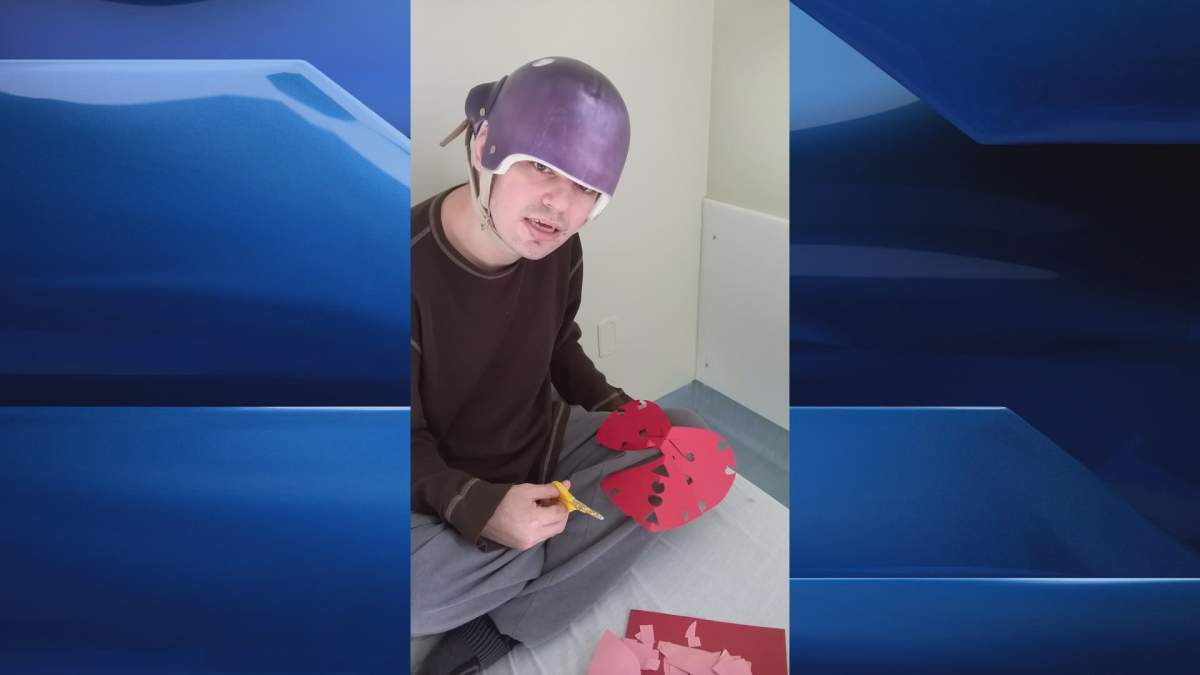Tracey Meisner, the mother of Emerald Hall patient Matthew Meisner, who was abused at the facility, says she has little faith in directives that have come from the final report into her son’s treatment at the facility on Sept. 3, 2016.

READ MORE: Abuse alleged at Nova Scotia Hospital’s Emerald Hall
Matthew is said to have been banging his head against Plexiglass while he was covered in feces before caregivers attended to him on the evening of Sept. 3. The report says he was then restrained to a Time Out Chair for nearly two hours — one hour longer than the facility’s policy recommends before a physician should meet with the patient face-to-face.
It was also reported that a witness heard one of the people responding to Matthew say, “That little f**ker,” and, “I wonder if his s**t is retarded.”
“I just want Matthew out of there … so much has happened over the years, you know, this is one of seven complaints,” Tracey said in a phone interview with Global News Tuesday.
“I’m just to the point where I do not want to deal with the hospital any longer.”
Tracey said she’s been appealing to Health Minister Leo Glavine to have Matthew moved from the facility to an autism-friendly, small-option home that’s closer to their home where they can more closely monitor their son’s care.

Get weekly health news
The minister said in an emailed statement that his assistant has been in direct contact with Tracey to try to help transition her son to more appropriate care.
“I have asked the NSHA to work with the mother to find a living arrangement that best meets his care needs,” Glavine said.
Hospital must comply with directives
Glavine also said the department takes abuse allegations “very seriously” and investigate any evidence brought forward under the Persons in Care Act.
The result of the investigation found flaws in the treatment of Matthew, leading the department to issue 12 recommendations to the Nova Scotia Health Authority (NSHA), which manages the hospital.
The directives to the administrator, released with the report Friday, include:
- Staff must be knowledgeable of patient needs as identified in their care plan, and aware of interventions and strategies that are in place.
- A process must be in place to ensure staff are aware of pertinent information in patient care plans.
- Staff must understand and comply with facility-based policies, specifically those related to patient care.
- All staff, including contracted and casual staff, should be trained and assessed on their ability to utilize patient care related equipment prior to its use.
- Review the effectiveness of the use of the emergency restraint chair.
- All staff are must be aware of, and comply with, reporting procedures and related debriefings following such incidents.
- All staff must be educated on the policies and procedures for documentation when patients are in the emergency restraint chair, or at other such times when documentation is required.
- All staff must be aware of the location of personal protective equipment and their appropriate usage.
- Should the implicated person continue to be employed at the facility, education related to patient respect, sensitivity and communication must be provided. This education shall be provided to any other employee the Administrator feels requires such education.
- Should the implicated person continue to be employed at the facility, education on approach and intervention for working with patients with developmental disabilities must be provided. This education shall be provided to any other employee the Administrator feels requires such education.
- A plan should be developed to ensure that interventions trialed, reasons, and length of time of isolation is clearly documented and reviewed for patient and staff safety.
- The process for video surveillance should be reviewed and a mechanism to preserve video footage be developed for review in the event of an allegation of abuse or other serious incidents.
“I really feel that they can issue as many directives as they want, but they still can’t guarantee his safety and that’s what I’m concerned about,” Tracey said.
The NSHA has until Jan. 31 to submit a plan for addressing the directives. Failure to comply with the directives can result in a $30,000 fine, according to the department of health.








Comments